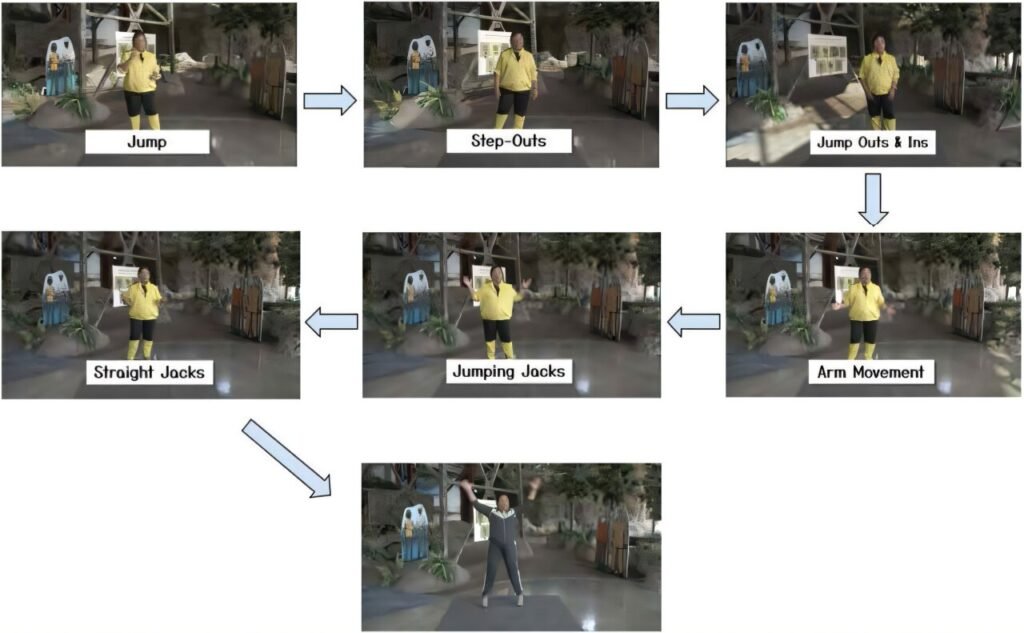A groundbreaking study conducted by a team of researchers at the University of Michigan has utilized artificial intelligence to revolutionize the way exercise programs are delivered to children with autism. Led by U-M exercise physiologist Rebecca Hasson, the research team revamped a physical activity program that was originally designed to assist children in exercising during the transition to online learning amidst the COVID-19 pandemic. The team collaborated with ChatGPT to enhance the instructions for the program’s 132 exercise videos, tailoring them to better cater to the needs of neurodivergent children. Their findings have been published in the prestigious journal, Frontiers in Physiology.
The inception of this innovative approach dates back to 2012, during Michelle Obama’s “Let’s Move!” campaign aimed at tackling childhood obesity. Hasson embarked on a mission to incorporate physical activity into children’s daily routines. Together with her colleagues, they developed a concept known as “exercise snacks” – short bursts of exercise lasting approximately three to four minutes. This initiative, dubbed InPACT (Interrupting Prolonged Sitting with Activity), has been successfully implemented in 25 schools across Michigan.
However, when the pandemic forced children to shift to remote learning, the researchers had to adapt the program for home settings. To ensure accessibility for children without internet access, they collaborated with PBS’s Michigan Learning Channel and the Department of Education to broadcast the physical activity program on television. Within a short span of six months, the TV show garnered a daily viewership of 15,000-20,000 individuals.
Recognizing the unique challenges faced by neurodivergent children in following exercise instructions, researcher Haylie Miller, a developmental psychologist and assistant professor of movement science, spearheaded efforts to tailor the InPACT program to better suit the needs of this demographic. Neurodivergent individuals process sensory information differently, making physical activity more challenging for them. These individuals may require additional support and modified instructions to engage in physical activities comfortably.
The team embarked on the task of adapting the 132 exercise videos from the InPACT program to be more inclusive of neurodivergent individuals. Undergraduate student Tania Sapre played a crucial role in leveraging ChatGPT to streamline the process of creating exercise instructions. By structuring queries based on the video content, categorizing activities into skill groups, and developing prompts for ChatGPT to generate tailored instructions, the team successfully crafted exercises that were more accessible and comprehensible to neurodivergent children.
Moreover, the team meticulously reviewed the AI-generated instructions to ensure they adhered to the core principles of the program – consistency, conciseness, and clarity. By simplifying language, breaking down movements into explicit components, and using consistent wording across all activities, the researchers optimized the exercise instructions for neurodivergent individuals.
Alanna Price, a regional health coordinator, emphasized the importance of Adaptive Physical Education (APE) in modifying traditional physical education to meet the unique needs of all students, including those with autism or ADHD. Modified exercise directions can enhance the physical and cognitive development of neurodivergent children by simplifying movements, incorporating visual aids, and introducing sensory-friendly activities.
Looking ahead, the researchers aim to develop a “starter pack” of activity play cards for individuals with higher support needs, enabling them to build foundational skills before engaging in the full InPACT experience. They also plan to translate the videos into Spanish and Arabic to cater to a more diverse audience in Michigan.
In conclusion, this collaborative effort between researchers, educators, and AI technology has paved the way for a more inclusive and accessible approach to physical activity programs for neurodivergent children. By embracing universal design principles and leveraging innovative tools like ChatGPT, the team has demonstrated the power of partnership and innovation in advancing opportunities for all children to lead active and healthy lives.


